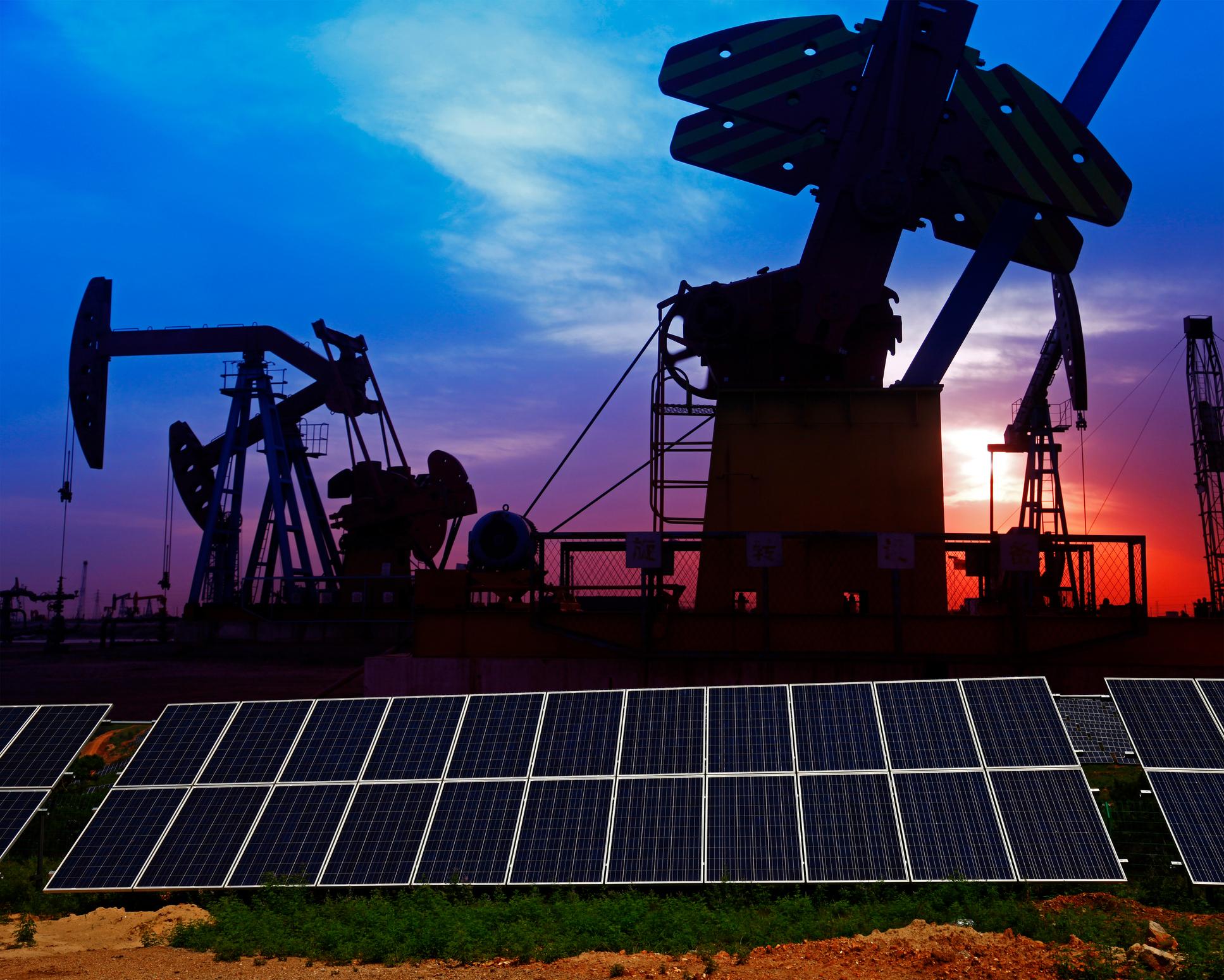
Plain English With Derek Thompson
The Energy Story of the Moment: The Unstoppable Rise of Solar Vs. the Unmovable Demand for Global Fossil Fuels
Hosts
About the episode
Fans of green energy like me face some inconvenient truths about the global energy picture. First, coal sounds like a dirty technology that the rich world is moving on from. But nearly 9 billion tons of coal were burned last year—an all-time high. Second, “peak oil” is a prediction that many analysts have thrown around in the past few years, but oil production is also near its all-time high. Third, we might not even be at peak wood: Global wood fuel production was higher in 2024 than in 1980.
At the same time, I think the renewable energy revolution is proving to be its own unstoppable phenomenon. Solar and battery installations are still exploding upward, and whereas some skeptics worried that the earth wouldn’t be able to provide the essential elements and metals to build out a green energy system, those doubts seem, for the moment, overwrought. Lithium, which is one of the most important metals for battery production, has seen its resources double since 2018.
So what we have is not a pretty picture but a messy one. A green energy boom matched with an enormous demand for fossil fuels, as billions of people around the world drive and eat and demand the middle-class lifestyle that is their right.
Today’s guest is Nat Bullard, an independent energy analyst and the author of a new extraordinary report on the state of energy and decarbonization. We talk about everything: coal, oil, wood, and natural gas; the history of nuclear vs. solar in America; the solar and battery revolution of the 21st century; the political barriers to its growth; the rise of BYD in China; the flatlining of Tesla’s growth; and the future of energy technology.
If you have questions, observations, or ideas for future episodes, email us at PlainEnglish@Spotify.com.
Nat’s report: https://www.nathanielbullard.com/presentations.
Summary
In the following excerpt, Derek talks to Nat Bullard about his research on global energy data.
Derek Thompson: Your decarbonization deck is cause for celebration in many corners of the world, and I’m very honored that you agreed to bring the party here. You are in Singapore.
Nat Bullard: I’m in Singapore.
Thompson: And I’m in North Carolina. So, if folks feel like I sound a little sleepy or Nat sounds a little groggy, just choose instead to be impressed by the technological fact of podcasting in real time across 10,000 miles. Nat, to kick us off, who are you, and what should we know about this deck?
Bullard: So I’m an analyst by training. I spent the last 18 years now really only looking at the world of energy and how it changes state by technology, by market, and by what we choose to prioritize in terms of what we build to energize our whole world. I did this for a start-up. I did this at Bloomberg for more than a decade. I now do this on my own. I do this also through a start-up that I’ve cofounded in the U.S. And my main priority is to try to bring the clearest possible view of the present day.
I think we have so much noise and so much sort of energy, no pun intended, floating around the world in terms of thinking about the future that the best possible thing we can do to help us is to just get a very clear view of the present day.
So, starting a couple of years ago, freed from the surly bonds of a giant corporation, I was able to go ahead and do what I’d always wanted to do, which is this mega-presentation that told a narrative, if you will, driven entirely by facts. A narrative that talked about where we are and used that to think about where we might be going. And it’s, I think, a useful exercise that I do every year for myself largely in terms of helping me understand, but I decided to make it public and publish it.
And I wouldn’t say that there was necessarily a void for this kind of thing in the market, but there is a world that tends to be bucketed into these multitrillion-dollar sectors on their own. Transportation, the transportation of fuel, the consumption of fuel, the power sector, oil and gas, petrochemicals. And I was like, “You know what? No one really gets a chance to wrap this all into one ball.” Now, it’s by no means comprehensive. By its nature, it can’t be. But I try to touch upon everything that I think of as the prime movers or the main drivers of change in the moment and just get a clear picture of where we are, and hopefully that helps inform people on where we might be going.
Thompson: We just had Michael Cembalest from J.P. Morgan on the show to give a state of the economy, as his Eye on the Market newsletter is dozens of pages that give you a sense of everything that matters that’s happening in the U.S. and global economies. I think of this report very similarly. This is a state of global energy report, 200 pages, 200 charts. We’ll link to it in the show notes, of course.
But here in the show I want to focus on four major themes of this year’s report, which I’m just going to name now to set the table for you and for listeners. First, I want us to be very clear about the challenge. It’s not just that the world’s getting hotter; it’s also that fossil fuel production is near or at record highs. So the fossil mountain has never been higher by some measures. That’s the challenge. No. 2, I want to talk about progress. And in particular, I want to focus on the progress made in solar energy and battery technology.
No. 3, I want to talk about bottlenecks to progress. Progress isn’t easy. There are a lot of regulatory and political and market-side challenges to, barriers to solar and battery and other clean tech moving forward. And then finally, I want to talk about China, Tesla, AI, and the future.
So, let’s start with point one. Let’s start with a challenge. And to be honest, I think you lay it out beautifully. And let me just give two facts that I gleaned from your report. Fact, in 2000, Europe consumed twice as much coal power as India. Today, India consumes more coal than Europe and North America combined. So why is coal production near or at an all-time high? It’s because of facts like that. No. 2, in 2000, Europe and the U.S. both imported 10 times as many barrels of oil as China. Today, China imports more oil than both of us.
I think that offers a taste of why fossil fuel production remains so high. But help us understand from a global standpoint just how robust and sturdy fossil fuel demand still is.
Bullard: We’re in a tricky spot right now, which is that it’s possible to sort of see where these things might peak every time you look forward five years. And in fact, it’s been that way for at least the last decade, in my mind. And we have yet to meet it because energy demand is really sticky. It’s really persistent. There are parts of the world that are still energizing, so to speak. They need to just get access to energy to begin with. There’s other places that are sort of under-energized compared to the way we live in Europe and the U.S. and all of what we would call the rich countries of the world in the OECD.
And then there’s also just a lot of industrial activity in particular in a place like China. And in a place like India, there’s industry as well as demand cycle that we went through a long time ago in North America, which is air-conditioning, making sure that we’re better prepared for the heat of a warming world.
And it’s been very hard to displace these trends with anything new, yet there are some signs that at least in China, this might be coming towards a couple of potential peaks. I’m very loath to call a full-on peak in anything right now until we see more years of data. But these two countries on their own are, what, 2.6 billion people, 2.7 billion people, with together much less access to energy on a per capita basis than anything we’ve got in the West. And also, particularly in China’s case, the bulk of manufacturing of almost any good you can think of, whether it’s a primary good, whether it’s a finished good. So that just means that all of that demand has flown to these places, and then there are other places that have to catch up.
So it’s important to note—and this is not original from me—but there’s no such thing as a wealthy, low-energy country. There’s no such thing around the world as a country that has a high degree of per capita income and a very low degree of energy consumption. It just does not exist. And so, in the absence of anything better, we’re going to be doing this with fossil fuels. And the sort of urge, the societal and human urge to be in a high-energy and wealthy position is I think very, very hard to not only unwind, but hard to even not wish on people, in a sense.
This excerpt has been edited and condensed.
Host: Derek Thompson
Guest: Nat Bullard
Producer: Devon Baroldi
